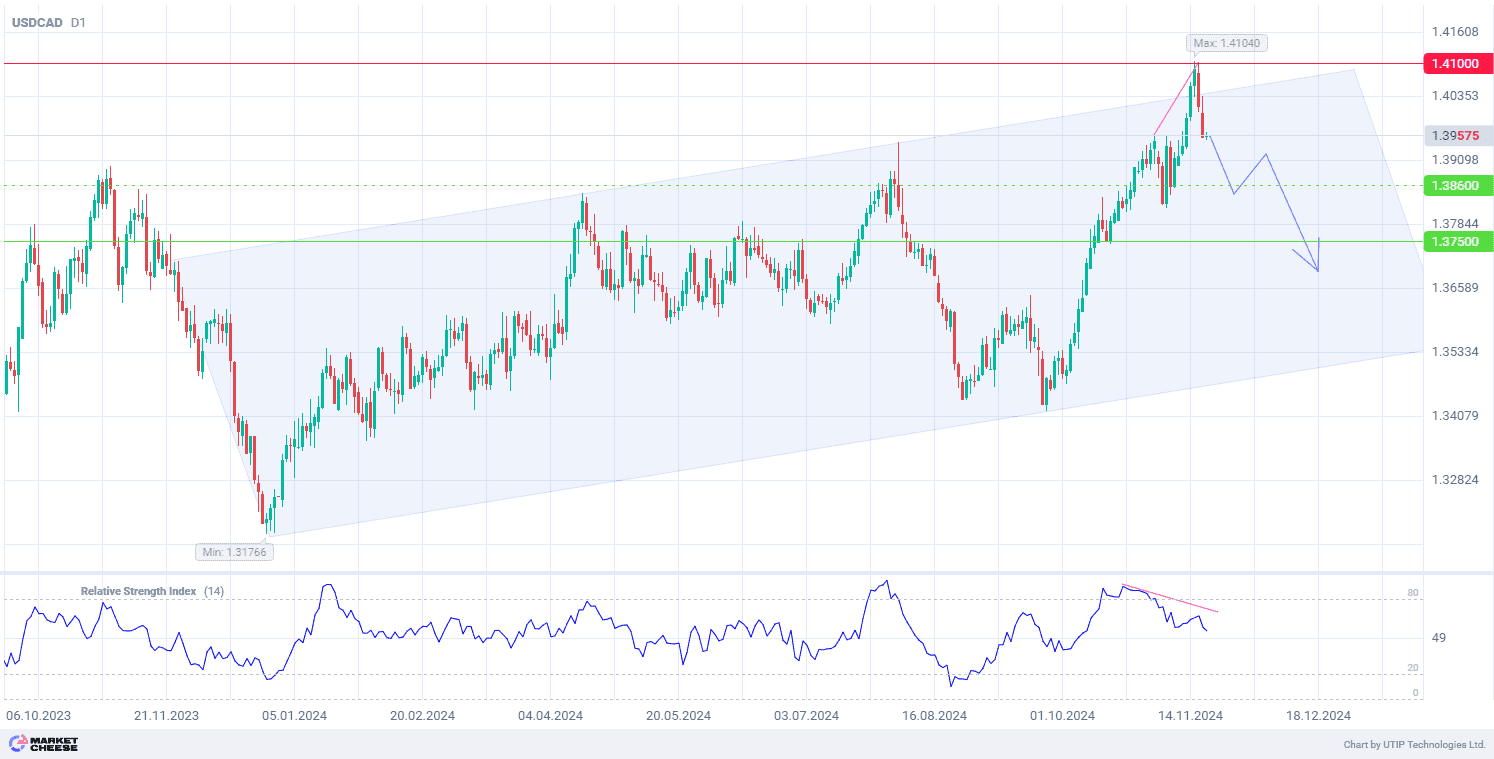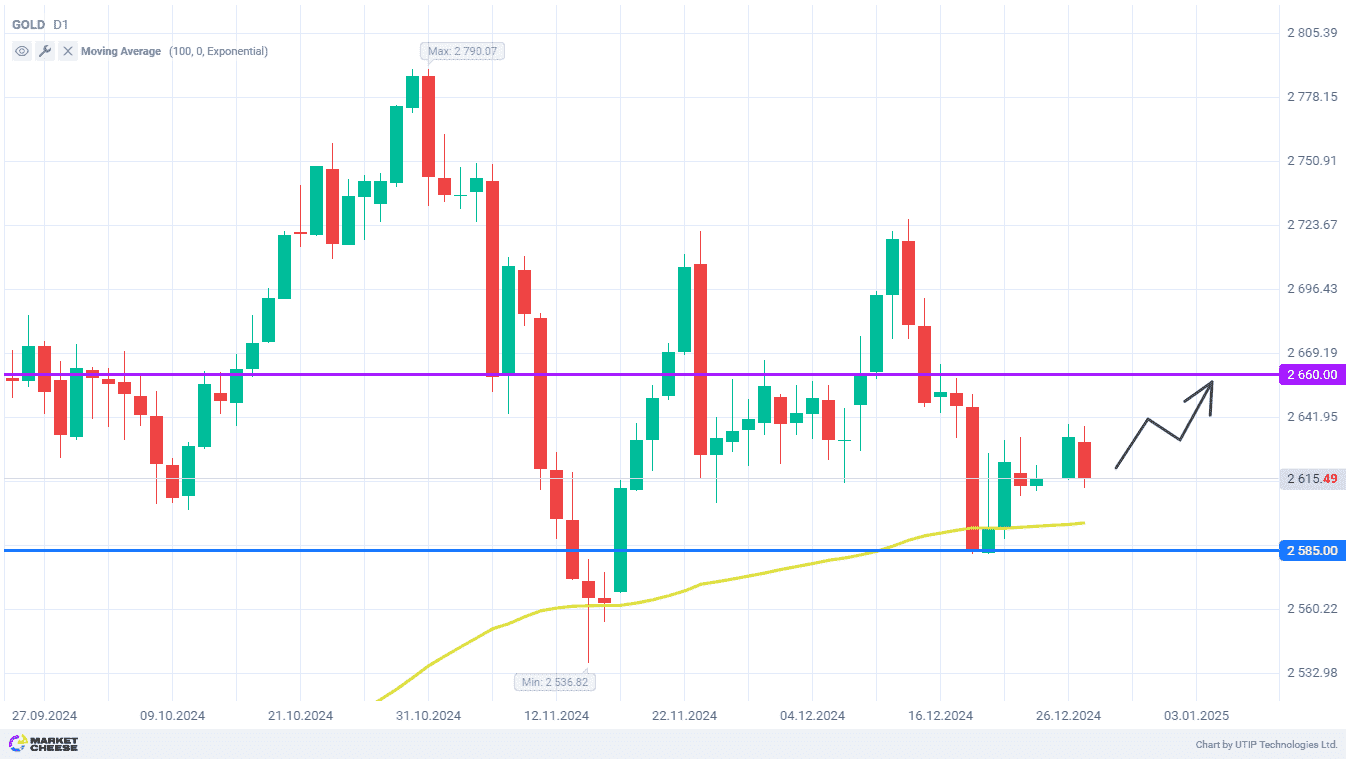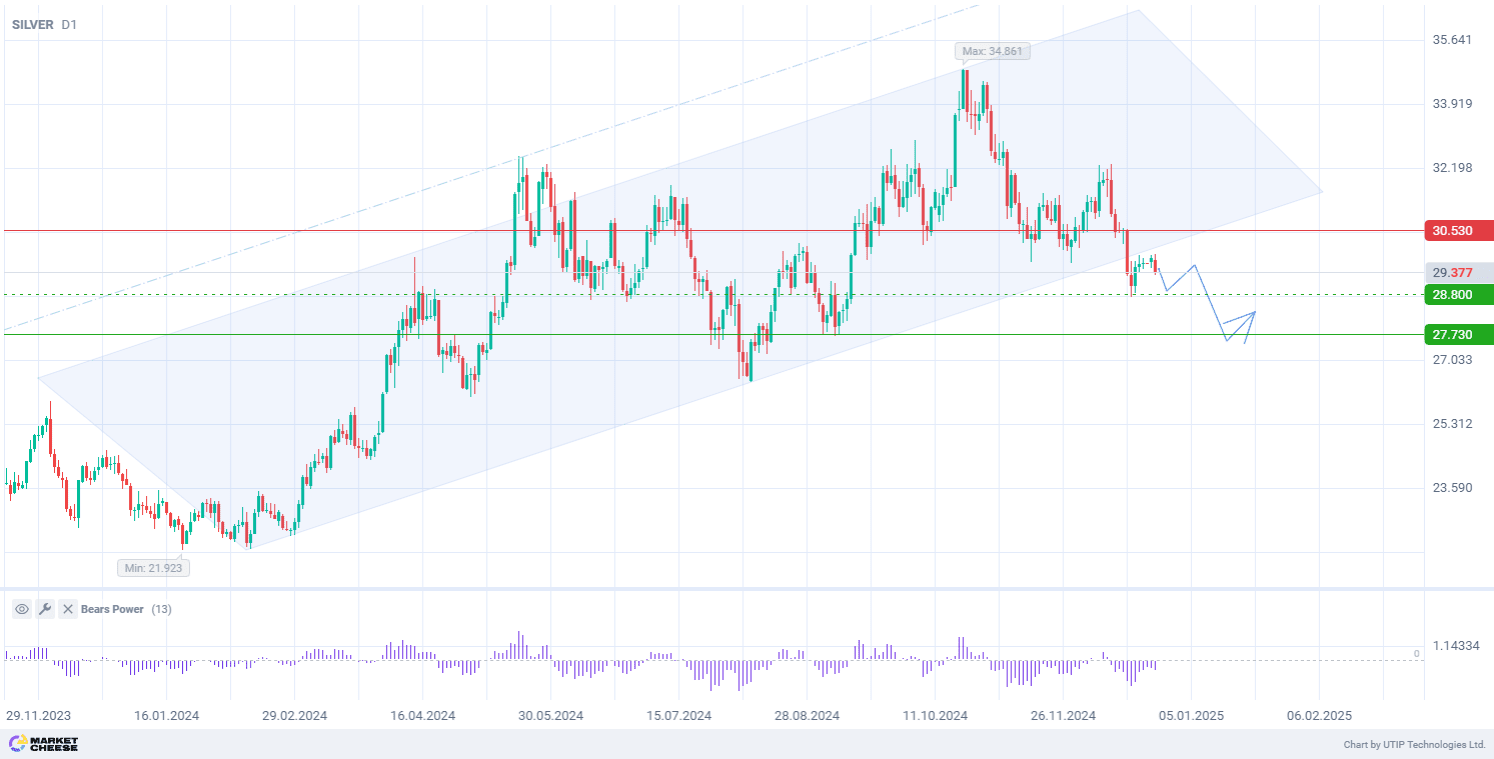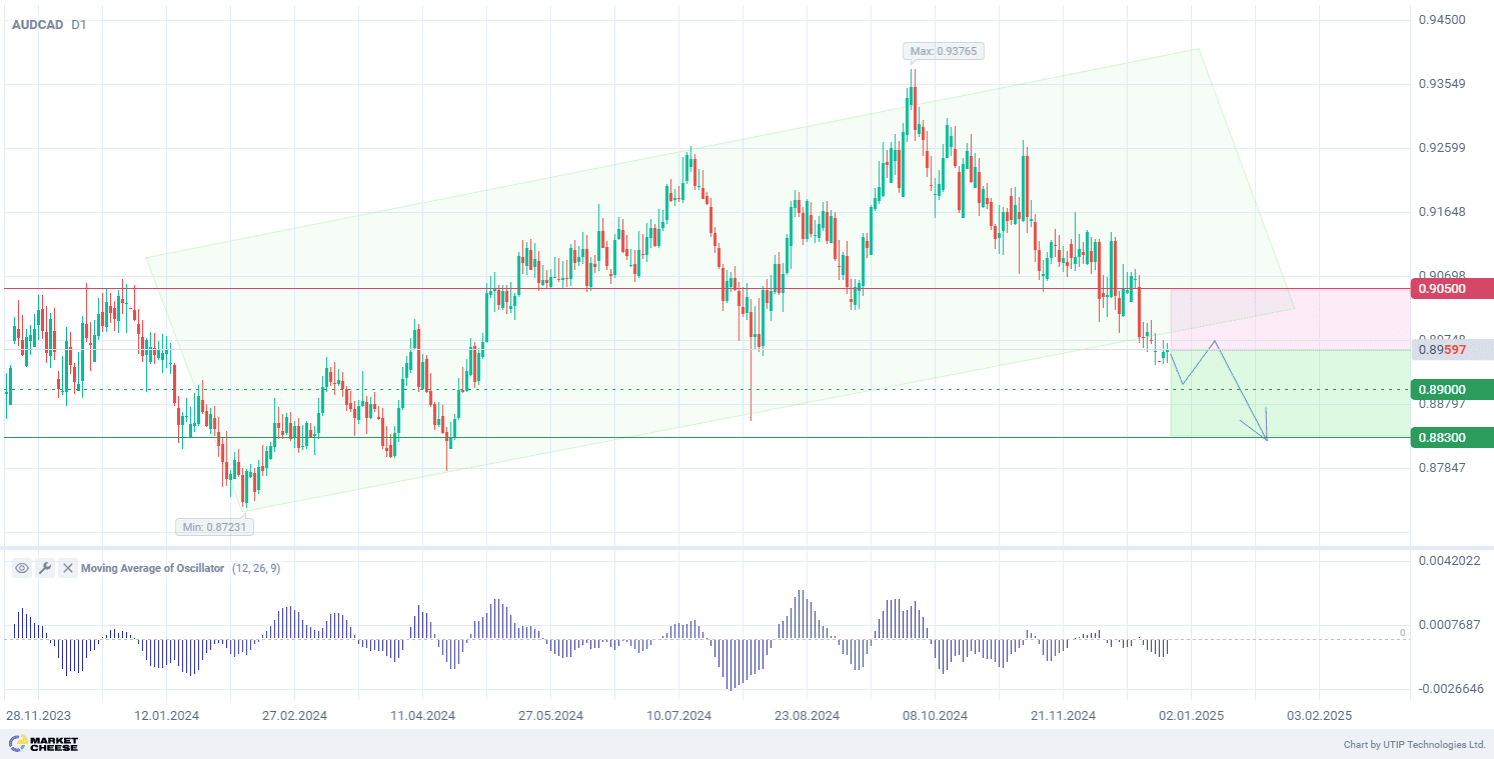
Canadian statistics reverse USDCAD to selling
The USDCAD exchange rate stabilized on Wednesday after a strong pullback starting from the beginning of the week from the highest level since May 2020. The main factor of the pair’s latest decline was the Canadian statistics.
Canada’s annual inflation rate rose to 2.0% in October, according to data released Tuesday. The indicator exceeds economists’ forecasts (1.9%) and the September figure (1.6%). This data prompted investors to revise their expectations regarding a possible significant interest rate cut by the Bank of Canada.
Market participants see a 23% chance of a rate cut by the Canadian regulator at the meeting on December 12.
This week, speeches from the US Federal Reserve officials are expected to clarify the outlook for interest rates. According to CME FedWatch, there is a 58.9% chance of a 25 basis point reduction in borrowing costs in December. However, given recent economic data and possible tariffs by the newly elected US President Donald Trump, the likelihood of rates remaining high for a longer period also remains strong.
According to Kansas City Fed President Jeffrey Schmid, it remains uncertain how far interest rates can fall. Nevertheless, the first steps made by the US central bank to ease monetary policy demonstrate confidence that inflation is gradually returning to its 2% target.
Technical analysis of USDCAD continue to show the formation of a new uptrend on the daily timeframe (D1). The price accelerated the downward movement after testing the channel resistance.
The Relative Strength Index (RSI) divergence (standard parameters) signals a possible reversal of the price direction towards the trend support of the ascending channel.
Signal:
The short-term outlook for USDCAD suggests selling.
The target is at the level of 1.3750.
Part of the profit should be taken near the level of 1.3860.
A stop-loss could be placed at the level of 1.4100.
The bearish trend is short-term, so a trading volume should not exceed 2% of your balance.



